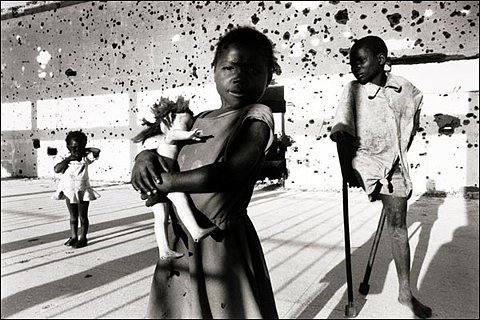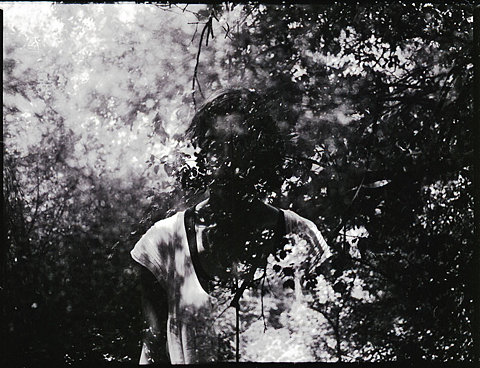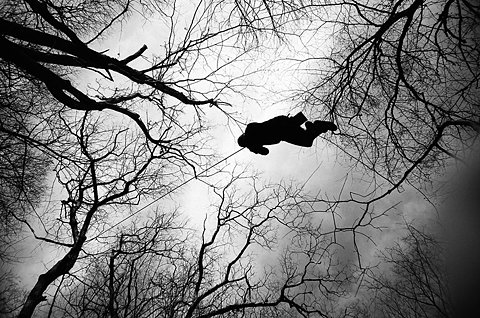Notes on a talk by Michael Stone at Centre of Gravity, June 16, 2013
Beggar
When the Buddha spoke to his people, his group, he used a word that is often translated as “monks.” But the word is “bhikku” which means beggar. The Buddha insisted that his community rely on everyday householders for support. If you travel to Korea, Japan, India, Thailand you will see monks going out with their bowls, begging for food. And in turn, the Buddha hoped that the monks could offer teachings to the householders. They were in relation, being a monk meant always being in relation with others, not retiring or retreating from the world.
The Buddha spent a lot of time travelling, slowly walking, but when he set up his camp (during the rainy seasons, for instance), it was often within a half mile of the world’s first cities. He was never far from the metropolis, the core.
Interface
Dharma also arrives in the west via this interface, most practitioners are householders, and this poses challenges. It’s hard to practice as a householder because we want our practice to be rigorous and we want to have a great sex life and to have great relationships and deep friendships and appropriate livelihoods.
Radical Acceptance
Marsha Linehan developed Dialectical Behaviour Therapy (DBT), a form of psychotherapy that arose out of her deep Zen practice. She has worked for years with borderline patients who, she discovered, are phobic of their emotions. She pulled elements from her Zen practice into her clinical work with great results. The interface of the dharma and secular teachings may seem new but it’s always been the case.
Wikipedia: During a speech in 2011, Dr. Linehan disclosed that she suffers from borderline personality disorder. In an article published at the New York Times website on June 23, 2011,she spoke about her own history of self-harm and multiple suicide attempts, as well as her own efforts through therapy to recover from the disorder and live a healthy, productive life. Dr. Linehan developed DBT as a result of her own transformation that occurred in 1967, while she prayed in a small Catholic chapel in Chicago. “One night I was kneeling in there, looking up at the cross, and the whole place became gold – and suddenly I felt something coming toward me… It was this shimmering experience, and I just ran back to my room and said, ‘I love myself.’ It was the first time I remembered talking to myself in the first person. I felt transformed.” Linehan, then, takes this “radical acceptance,” as she calls it, and incorporates it into the techniques of cognitive behavioral therapy meant to change the harmful behavior of a self-cutter or a person who battles chronic suicidal ideations. In essence, DBT strives for a balance between acceptance and change, or integrating contradictory philosophies (“you are loved the way you are,” however, “you must strive to change”).
Your Experience
At the time of the Buddha, truth seekers had taken to the forests and worked on the Upanishads, a set of texts that would provide the foundation for the Hindu religion. They were primarily concerned with three questions. What exists? (ontology) How do you know it exists? (epistemology) 3. What continues from life to life? The earliest of these groups practiced in woods not far from where the Buddha was born and raised. He was connected to them, in dialogue with them. But he felt the first question was useless. And he turned the second question into: what is your experience of what exists? One of the unique features of Buddhism is its emphasis on subjectivity and independence (as opposed to relying on a belief system.
Buddha was not attempting to find the origin of consciousness, he was looking at moment to moment awareness. There are two names for this process: 1. Conditioned arising 2. Karma. As soon as I hear the word karma I can’t get John Lennon’s Instant Karma out of my mind. Instant Karma’s going to get you. The commonly mistaken impression is that karma is fate. But it comes from a root word “kur” meaning to create. Karma means to create. Creation includes the intention, the action, and the result of the action. The effects of some creative actions are instant (jazz improv, snapping your fingers), others are delayed (parenting). Karma is not a thing that happens to you, karma is what you are. You are karma. You don’t have karma, it’s not stored up in a room.
The Buddha changed the understanding of karma. Before the Buddha karma meant rebirth, it was about accumulating good deeds so you could have a better rebirth because of your “good karma.” The Buddha is not concerned with the next life, but with this life, with moment to moment existence. He observed that at every moment there is a mini-birth and a mini-death. He emphasizes the fact that the actions you take right now determine this moment, and the culture you’re creating.
(Moliyasivaka): “Master Gotama, there are some ascetics and Brahmins who hold such a doctrine and view as this: ‘Whatever a person experiences, whether it be pleasant or painful or neither-painful-nor-pleasant, all that is caused by what was done in the past.’ What does Master Gotama say about this?”…
“By action is one a farmer, by action a craftsman,
By action is one a merchant, by action a servant,
By action is one a thief, by action a soldier,
By action is one a priest, by action a ruler,
In this way the wise see action as it really is,
Seeing conditioned arising, understanding result of action.” (Sn. 651-3, p. 84. Tr. Nanavira Thera)
Fall
Perhaps you’ve come to practice to get rid of your unwanted self. But the Buddha is teaching the doctrine of no-self in a positive sense, urging his bhikkus to develop the self, so they can see there is no self. The way you see the self isn’t permanent is to cultivate it and see how it changes. You fall down and get back up. When you fall down the persona shatters. Jung: There’s nothing wrong with the persona as long as you have a lot of them.
The Buddha feels the self is performed, plastic, a process undertaken. There’s a koan about this. A student comes to his teacher and says, “There’s a saying I’ve heard. When you fall you need the earth to get back up. What is this falling down?” The teacher answers, “It’s allowing.” Student: “What’s getting back up?” Teacher: “It’s getting back up.”
If you allow, if you admit, then you’ll fall, and your persona, one of your personas, will break.
Karma is creativity. What are you going to do with what you have? You don’t have to be the same person again tomorrow. I think we need to do more work forgiving ourselves. It should be a daily hygiene practice, like flossing our teeth. Could we take out five minutes of each day and forgive ourselves? Make a list of what happened in the day and look at all that needs to be forgiven. Moment after moment.



